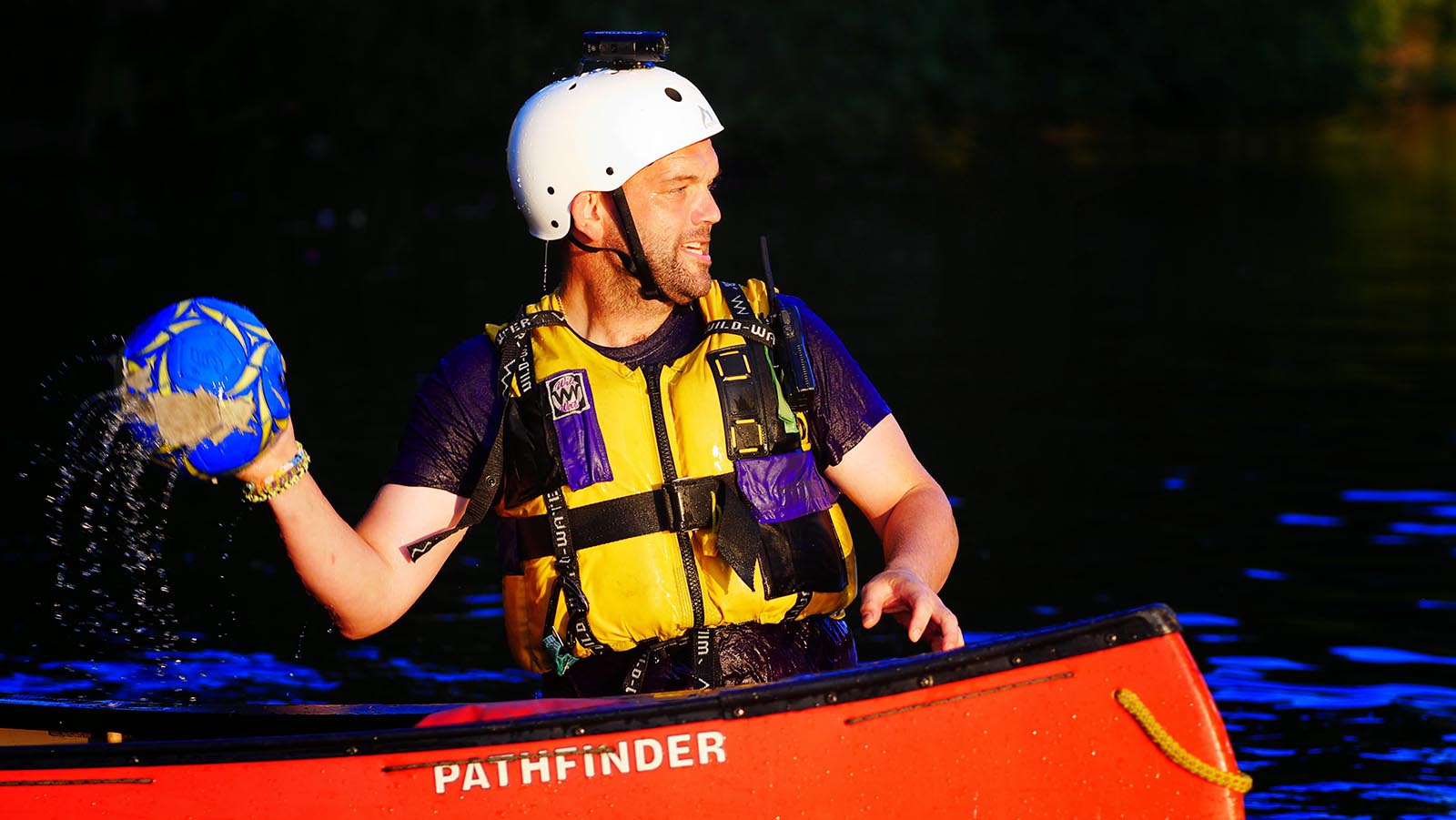“The Health and Safety Executive consider that the competent person in charge is more important than a written risk assessment because it is they who are in the best position to assess the risks at that time. As such they are able to act ‘dynamically’, to assess the risk and immediately implement a ‘controlling’ action. Also, they have the ability to constantly review the risk assessment as the conditions alter.”
British Canoeing, Paddlesafer V3.0
The Paddlesafer guidance is great… but we do need to work out what level of experience and expertise and experience is going to be needed for someone to be doing competent dynamic risk assessments on the day!
Appointment of Safety Advisors
The Club’s Safety Officers maintain a register of Safety Advisors. All appointments are be made (and registered) using British Canoeing’s robust Paddlesport Activity Assistant Scheme.
For each Safety Advisor the Club shall maintain (and regularly review) a British Canoeing Paddlesport Activity Assistant Action Log. This shall document specific role requirements in relation to:
- Meeting Participants Needs
- Planning for a Safe Environment
- Preparation of Facilities & Equipment
- Delivery and Supervision of Activity
- Session Evaluation
- Developing Personal Practice
- Safety Management & Rescue Skills
Unless explicitly noted, Safety Advisors shall be Craft and Discipline Specific. Qualifications and external evidence may be taken into consideration but sign-offs as Safety Advisors shall always:
- Be a matter for the Club to decide;
- Be open to anyone with relevant experience and expertise;
Site specific training will be used as appropriate, especially where boundaries are crossed.
- E.g. where a rower wishes to act as Safety Advisor at a session including open canoes, or where a polo specialist wishes to act as Safety Advisor at a session involving marathon craft.
- E.g. where a rower wishes to act as Safety Advisor at a session including open canoes, or where a polo specialist wishes to act as Safety Advisor at a session involving marathon craft.
Support and Guidance for Safety Advisors
Pennine CRC shall provide Safety Advisors with this safety management document (including appendices) as a framework for exercising judgement and as an aid to decision making. Safety Advisors will also be introduced to (and invited to work from) British Canoeing’s Environmental Definitions and Deployment Guidance for Instructors, Coaches and Leaders – from which the Club highlights the following:
“Factors to take into consideration when making decisions are determined by the current experience of the individual coaching or leading, their qualifications and any additional training received. It is vital that appropriate decisions are made on the day as environmental conditions change (e.g. wind, sea states, river levels, etc.). A dynamic approach to decision making is recommended which considers the diverse nature of the environment, individual abilities and the group. The recording of decisions made is encouraged and seen as good practice.
“British Canoeing recommends that these guidelines are followed in conjunction with appropriate safety management systems, risk assessments and codes of practice relevant to the activity concerned. British Canoeing recognises that deployers may need to adopt differing ratios and/or qualifications for specific activities. If mixed fleets are used, the person leading the session should have appropriate experience in leading and rescuing different types of craft.
Pennine CRC shall ensure all Safety Advisors are competent to talk through on-water arrangements and float plans in ways which reflect the contents of this document. Their role shall be in relation to all those involved with on water activity in a session but their focus shall be primarily on ensuring those “developing independence” are either {a} planning an appropriate peer trip in an informed manner); or {b} adequately supported by advanced paddlers or guides.
Control Measures for Routine Activity
In assessing risks and preparing control measures, the club works from the following framework – aiming at “typical” (or better) – but don’t go overboard: the idea is to take proportionate steps!
| Highly Unlikely | Unlikely | Likely | |
| Significant (Unpleasant) | 1.1 Trivial | 2.1 Typical | 3.1 Tolerable |
| Serious (Major Injuries) | 1.2 Typical | 2.2 Tolerable | 3.2 Extreme |
| Severe (Fatalities) | 1.3 Tolerable | 2.3 Extreme | 3.3 Unacceptable |
With standard control measure in place, Pennine suggests the following risks, as associated with routine activity, all fall within “1.2” or “2.1” – the “Typical” range.
| Hazard & Who Might Be Vulnerable | Standard Control Measures |
| Poorly conceived proposal – with failings around why, what, who & how – leading to inadequate planning & preparation – endangering everyone! | Documented discussions with a Club Safety Officer considering the full “span of control” & approach to risk management |
| Participants not supported to make informed decisions to take part – unreasonable expectations – endangering everyone! | Discussion to be managed by a designated Safety Advisor (agreed by the Club Committee) & monitoring of formal communications |
| Inadquate arrangements for Safeguarding / First Aid / verification of credentials – endangering Young People & Vulnerable Adults / Everyone | Documented discussions with a Club Safety Officer considering Safeguarding lead & proportionate activity-specific measures |
| Logistical failings & poor preparation – choice of meeting points through communications to equipment – endangering everyone! | Designated Safety Advisor to ensure all key information is made available for scrutiny – e.g. communicating through open social media |
| Poor judgement & decision making at the start of the day – especially in dynamic risk assessment & revision of plans – endangering everyone! | Events to only go ahead with suitably experienced & supported Safety Advisor(s) & following a proportionate review |
| Poor judgement & decision making during the day – especially in dynamic risk assessment & revision of plans – endangering everyone! | All groups offered support in planning & preparation to ensure balance experience & expertise appropriate to the activity |
| Poor incident management on the day – systems & backups proving inadequate – endangering everyone! | Safety Advisor to maintain oversight of the system & all concerned to use the Float Plan Templates or a suitable equivalent |
Note: the above are “necessary” control measures – they may not be “sufficient” control measures – Club Safety Advisors may require more before sanctioning any activity!


